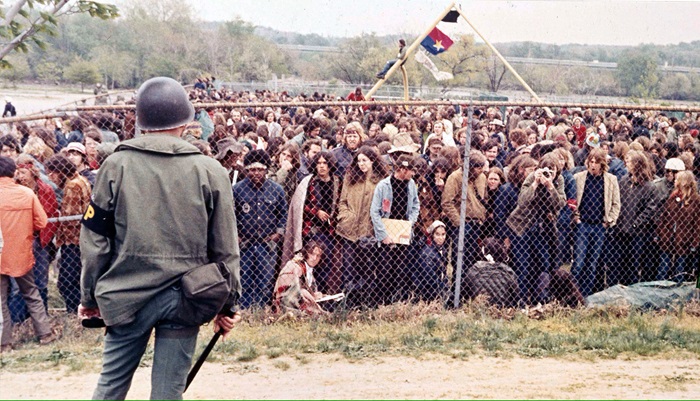In the annals of American history, May 12th emerges as a day marked by a diverse array of significant events that have shaped the nation’s trajectory. From pivotal moments in the struggle for independence to key developments in social and political movements, May 12th serves as a microcosm of the American experience. In this article, we delve into the historical tapestry of May 12th, exploring the moments that have left an indelible mark on the fabric of the United States.
1775: Ticonderoga Captured During the American Revolutionary War
On May 12, 1775, during the early stages of the American Revolutionary War, American forces under the command of Ethan Allen and Benedict Arnold captured Fort Ticonderoga from the British. Situated on the strategic waterway between Lake Champlain and Lake George in present-day New York, the capture of Ticonderoga provided the fledgling Continental Army with much-needed artillery and supplies, bolstering their ability to resist British rule and laying the groundwork for future military successes.
1932: The Body of Charles Lindbergh Jr. Found
May 12, 1932, marked a tragic chapter in American history with the discovery of the body of Charles Lindbergh Jr., the 20-month-old son of famed aviator Charles Lindbergh, in Hopewell, New Jersey. The infant had been kidnapped from the Lindbergh family home in March of that year, sparking a nationwide manhunt and capturing the attention of the American public. The subsequent investigation and trial of Bruno Hauptmann, who was convicted and executed for the crime, captivated the nation and underscored the impact of sensational crimes on American society.
1970: Kent State Shootings
One of the darkest chapters in American history unfolded on May 12, 1970, when National Guard troops opened fire on unarmed students protesting the Vietnam War at Kent State University in Ohio. The shootings resulted in the deaths of four students and the wounding of nine others, shocking the nation and sparking widespread outrage and protests across the country. The events at Kent State underscored the deep divisions within American society over the Vietnam War and the use of military force against civilian demonstrators, leaving an enduring legacy of trauma and activism in their wake.
1780: The Capture of Charleston During the American Revolution
On May 12, 1780, British forces under the command of General Sir Henry Clinton captured the city of Charleston, South Carolina, during the American Revolutionary War. The fall of Charleston was a significant blow to the American cause, as it resulted in the capture of over 5,000 Continental Army soldiers and effectively gave the British control over the southern colonies. The event marked a turning point in the war and underscored the challenges faced by the fledgling American nation in its struggle for independence.
1870: The First Transcontinental Railroad Completed
May 12, 1870, witnessed the completion of the first transcontinental railroad in the United States, linking the eastern and western halves of the country and revolutionizing transportation and commerce. The final spike, known as the “golden spike,” was driven into the ground at Promontory Summit, Utah, marking the culmination of years of labor and engineering marvel. The transcontinental railroad facilitated the rapid expansion of the American West, enabling the movement of people, goods, and ideas across vast distances and contributing to the economic growth of the nation.
1932: The Bonus Army Marches on Washington
During the Great Depression, May 12, 1932, saw the arrival of the “Bonus Army” in Washington, D.C. Comprising thousands of unemployed World War I veterans and their families, the Bonus Army descended on the nation’s capital to demand the immediate payment of a bonus promised to them by the federal government. The march and subsequent encampment sparked a tense standoff with authorities and highlighted the plight of veterans struggling to survive amid the economic hardship of the Depression. The eventual dispersal of the Bonus Army by U.S. Army troops under the command of General Douglas MacArthur drew widespread condemnation and further exposed the inequities of the era.
1967: The May 12th Protests Against the Vietnam War
Amid growing opposition to the Vietnam War, May 12, 1967, witnessed widespread protests and demonstrations across the United States. Hundreds of thousands of Americans took to the streets in cities from coast to coast to voice their opposition to the war and call for an end to U.S. involvement in Vietnam. The protests reflected a deepening divide within American society over the conflict and signaled the beginning of a broader anti-war movement that would reshape the political landscape of the 1960s and 1970s.
Conclusion
May 12th stands as a testament to the multifaceted nature of American history, encompassing moments of triumph and tragedy, resilience and reflection. From the struggles of the Revolutionary War to the upheavals of the Cold War and the social movements of the 20th century, the events that have unfolded on this date offer a window into the complexities of the American experience. As we commemorate the significance of May 12th, we are reminded of the enduring impact of history on the present and the imperative of understanding and confronting the challenges of the past in order to build a better future.

